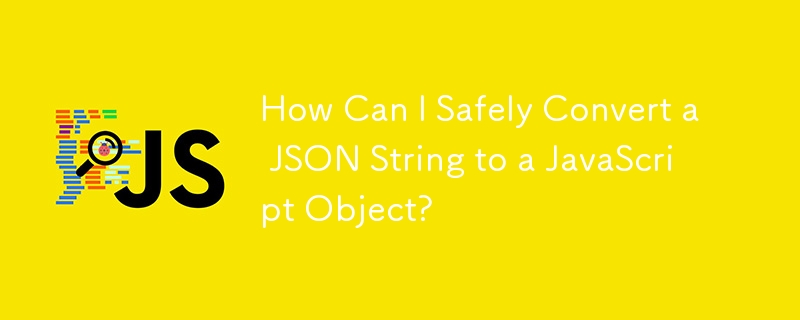

Safely Handling JSON String Conversion
Converting a JSON string into a JavaScript object is a common task when working with web applications. While the simple eval() method can be tempting, it poses significant security risks if the JSON string contains malicious code.
JSON.parse: A Secure Alternative
A safer approach is to use the JSON.parse() method. This pure JavaScript function parses the JSON string and converts it into an object. It does not execute any code embedded in the string, ensuring the integrity of your application.
Example:
To safely parse a JSON string, you can use the following code:
var json = '{"name": "John", "age": 30}';
var obj = JSON.parse(json);The resulting obj will be a JavaScript object with properties "name" and "age."
Compatibility Considerations
JSON.parse() is supported in most modern browsers, including Chrome, Firefox, and Edge. However, older browsers may not support this method. If compatibility is a concern, consider using a polyfill such as the one provided by the json2 library.
Conclusion
JSON.parse() is the recommended approach for safely converting JSON strings into JavaScript objects. By avoiding the use of eval, you can prevent potential security vulnerabilities and ensure the reliability of your web applications.
The above is the detailed content of How Can I Safely Convert a JSON String to a JavaScript Object?. For more information, please follow other related articles on the PHP Chinese website!




